At-home DNA test kits have skyrocketed in popularity in recent years. The most recent estimates show that some 26 million people worldwide have undergone genetic testing for ancestry. (1) “DNA testing has become one of the most common ways to learn about one’s ancestry. From a medical standpoint, it can be used successfully to discover potential genetically predisposed health conditions, improving quality of life and life expectancy.” says Dr. Aneesha Dhargalkar. So, what’s contributing to the hype? And what exactly can you learn from a DNA sample?
DNA test kits can reveal valuable information about your ancestry and/or health (some DNA testing services offer health tests that check for genetic predispositions, like Alzheimer’s disease and BRCA gene mutations that could increase your risk for breast cancer). (2) Still, privacy concerns and the accuracy of these tests remain up in the air, so how do you find a DNA test that is confidential and precise? We vetted and tried these five best DNA tests to determine their reliability, how well they protect data, and whether their health reports are backed by science. Here are the top DNA testing kits of 2024.
Best DNA test overall
Our best DNA test overall is Ancestry, which has more than 22 million people in its database and 27 billion records to help you discover your family history. Ancestry also processes DNA tests in two months or less and offers the option to purchase an upgrade for Ancestry Traits, which can shed light on traits related to your personality and appearance. With its easy-to-build family tree, simple interface, and vast DNA pool, Ancestry takes the cake for the best DNA test in 2024.
Our picks for the best DNA tests
- Best overall: Ancestry
- Best for finding relatives: 23andMe
- Best for building family trees: MyHeritage
- Best for maternal and paternal heritage: FamilyTree DNA
- Best for exploring DNA and health data: Living DNA
Compare DNA tests
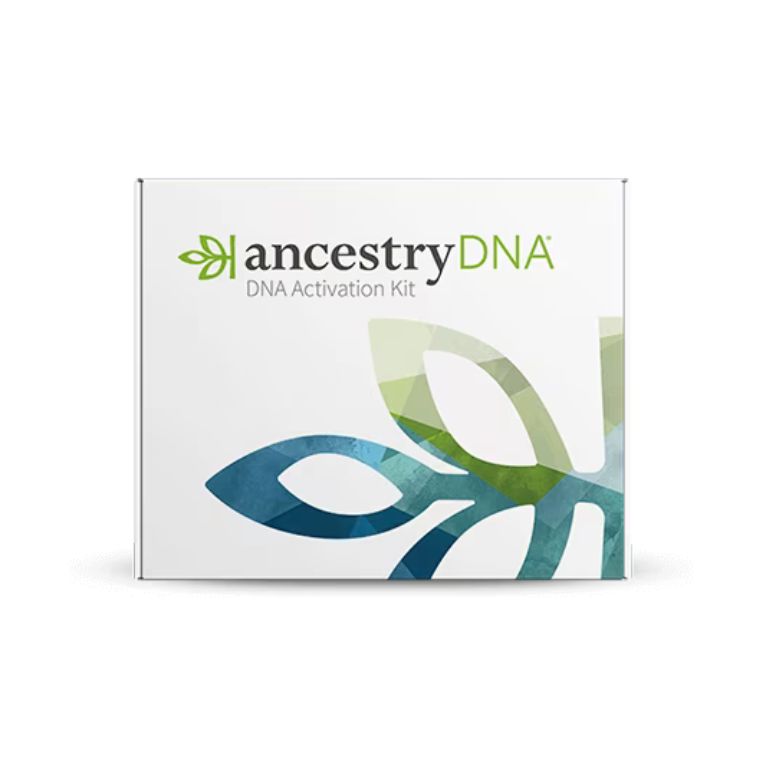
|
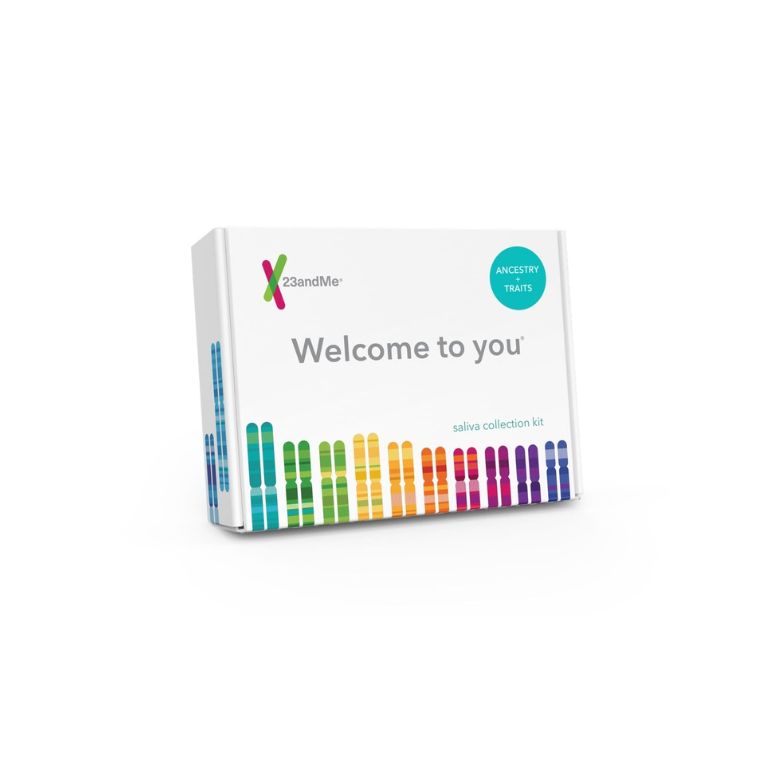
|
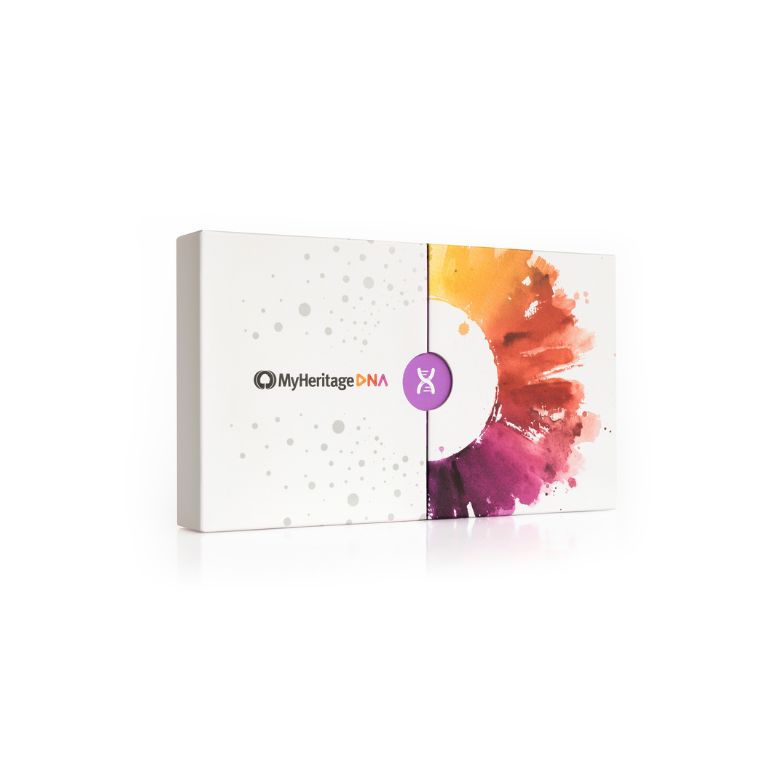
|
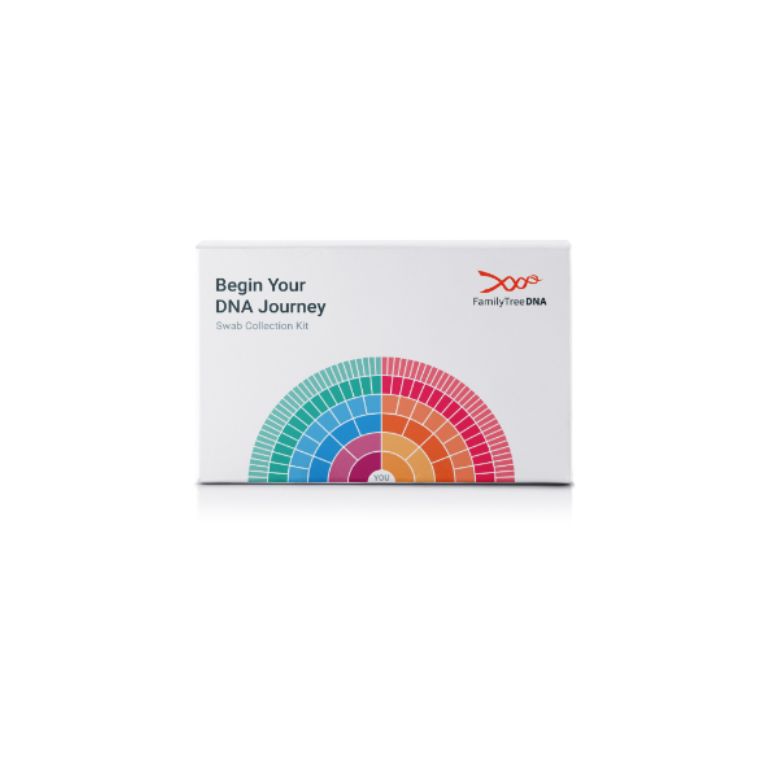
|
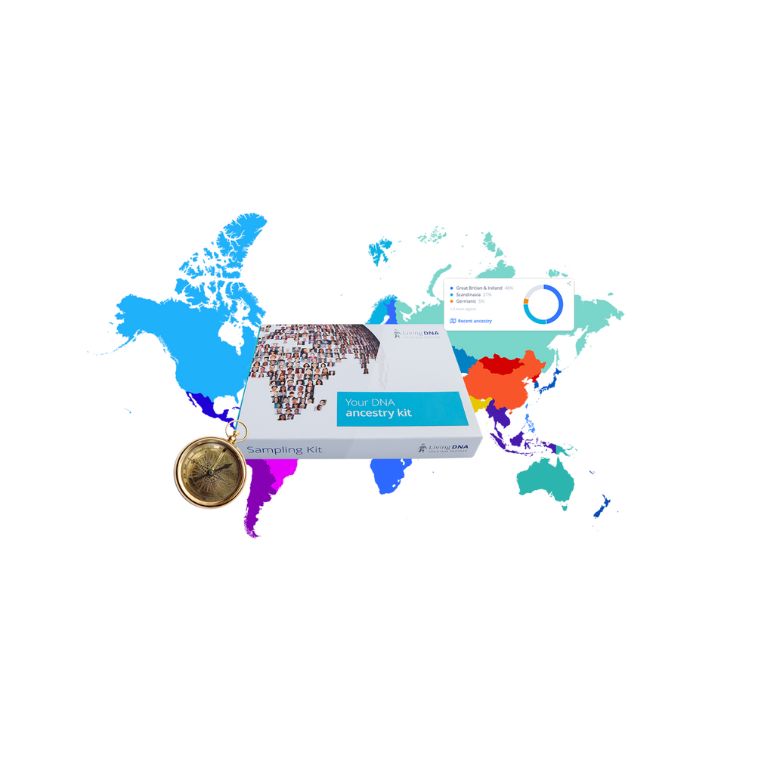
|
|
| Ancestry | 23andMe | MyHeritage | FamilyTree DNA | Living DNA | |
| Rating | |||||
| Price | $99-$199 | $119-$999 | $89 | $79-$449 | $124-$225 |
| Wait time | 6-8 weeks | 4-6 weeks | 4 weeks | 2-8 weeks | 6-8 weeks |
| Collection method | Saliva sample | Saliva sample | Cheek Swab | Cheek swab | Cheek swab or blood sample |
| Postage included | Yes | Yes | Yes | Yes | No |
Best DNA test overall: Ancestry
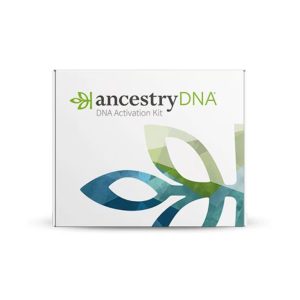

Key product features
What you should know
Ancestry is one of the world’s largest DNA testing services. Its DNA test database is home to over 27 billion records and 22 million people. Ancestry also offers a Traits test upgrade to learn more about your personality, habits, and looks.
- Multiple subscription tiers are available, with each net access to different types of records.
- Postage is included in the test kit price for shipping and mailing your sample to a lab.
- There is no limit on the number of family trees you can build, even without a subscription.
Why we like Ancestry as best overall
The best ancestry test on the market is AncestryDNA, which has an extensive database of 22 million people, 3.5 million subscribers, and over 27 billion records from 80 countries. Therefore, if you love genealogy or research, Ancestry is a great platform for you.
Still, Ancestry isn’t just for family history gurus or those who are internet-savvy. Ancestry.com has a simple and easy-to-use user interface. Building a family tree is a breeze, and you also have the option to auto-fill your family tree from matching entries in other users’ family trees. With its large user database, you’ll also have more potential DNA matches than many other DNA test platforms.
Ancestry does as the name says: it tests your ancestry through your genetic makeup, which includes your ethnicity estimate, migration routes your ancestors may have taken, and what DNA portions are inherited from which parent (a newer feature only possible if your parents have also taken Ancestry tests). This DNA test requires a saliva sample and delivers results in eight weeks or less.
When I took an Ancestry DNA test, I received results in about a month, so it may be sooner.
Sadly, Ancestry discontinued its health test in 2021. Instead, it now offers Ancestry Traits, an optional paid upgrade from its traditional DNA test that tests for traits related to your personality, habits, and looks. I found this feature unworthy of paying an extra $20 since I learned that I have curly hair (yes), freckles (yes), and dislike cilantro (yes). For me, the information wasn’t anything new, but some users may find it fun to learn how certain traits might be influenced by DNA.
Still, there’s little else to dislike about Ancestry, except for its paid subscription, which is required for researching historical records. Your DNA test will come with a free trial period if you’re a new user, but after that, you’ll need to maintain a subscription to access most research features (and this can cost several hundred dollars each year). Yet, there’s a lot you can still take advantage of without a subscription. You’ll retain your DNA matches, and you can build unlimited family trees.
Ancestry also takes great strides to protect user privacy. Ancestry won’t share your information with third parties unless you’ve given consent, and you can also opt-in or opt out of different privacy settings. These include maintaining a private, unsearchable family tree, creating a fake display name, and opting out of research consent to use your information in large-scale genetic studies.
Check out our Ancestry review for more information on this popular ancestry test.
What customers are saying
Ancestry has more than 26,000 reviews from verified customers on Trustpilot. Overall, customers give the DNA testing service 3.8 out of 5 stars. “I have been working on my family tree since 2009,” said verified reviewer Billie S., who wanted to learn more about her father, who was adopted. “AncestryDNA helped me identify [his] ancestors. There are no words to express my gratitude.”
“I knew very little of my family background. Ancestry overwhelmed me with data [for] those living today and back to my fifth great grandfather.”
June O., Trustpilot reviewer
Some customers complain that Ancestry doesn’t offer much European ancestry (for example, ethnicity estimates may point to Eastern Europe or Russia, which are vast swaths of land). “I also paid extra for character traits, and most of them aren’t even true,” said verified Trustpilot reviewer Alice. Other customers feel limited in their research options without a subscription.
Specs
| Price | $99-$199 |
| Wait time | 6-8 weeks |
| Collection method | Saliva sample |
| Postage included | Yes |
| User database | 22 million |
| Health testing | No |
Best DNA test for finding relatives: 23andMe
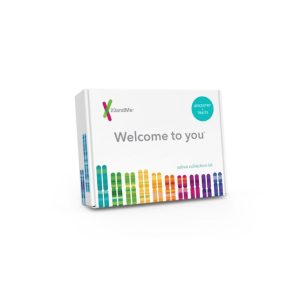

Key product features
What you should know
23andMe may have made a name for itself as a leader in health DNA testing, but its original tried-and-true ancestry testing is best for finding relatives. You can even place DNA matches directly into your family tree, a feature that doesn’t require a subscription or extra fees.
- Four DNA test kits, ranging from basic ancestry to total health reports, are available.
- No subscription is required to view and contact DNA matches.
- DNA matches can be added directly to your family tree.
Why we like 23andMe as best for finding relatives
In addition to testing for ethnicity—such as Asian, African, or European descent—23andMe can tell you unique facts like how much Neanderthal DNA you have compared to other users. Plus, those interested in discovering new cousins or long-lost relatives will love 23andMe’s simple DNA match program.
Your searchable list of DNA matches will auto-populate in order of largest to smallest match. You can also contact an unlimited number of matches and view shared surnames and places of origin. One of 23andMe’s most convenient features is its easy-to-build family tree, which you can autofill with DNA matches you’ve confirmed as your relatives. I found this feature very convenient.
23andMe also offers robust health screening ranging from simple reports with genetic predispositions to advanced health reports pinpointing more than 200 disease-causing variants. While the latter requires a large investment of just under $1,000 (and an ongoing $499 annual membership), other 23andMe health tests are more affordable and start at $229.
Still, 23andMe doesn’t offer anything in the way of research. It doesn’t house historical records, and you won’t be able to learn more about your family besides what you already know or learn through DNA matches. Therefore, 23andMe probably isn’t for you if you love to research.
What customers are saying
Verified customers on Trustpilot complain of slow or unhelpful customer service and issues logging into their accounts or accessing their data. “I bought a kit for my dad’s 70th birthday,” wrote verified reviewer Carly F. “The sample he gave wasn’t sufficient, so he never got results. Since then, they have refused to refund me or send a new kit.”
Still, 23andMe has many happy customers.
“This company is really fast with getting your results. They have thousands of my relatives and distant relatives. Overall, I feel it was worth the money.”
Brit, Trustpilot reviewer
Verified Trustpilot reviewer Carla says the same. “I was really pleased with how quickly I received the results.” she wrote. “It was a nice, smooth process and I have found a lot of relatives through the service.”
Specs
| Price | $119-$999 |
| Wait time | 4-6 weeks |
| Collection method | Saliva sample |
| Postage included | Yes |
| User database | 15 million |
| Health testing | Yes |
Best DNA test for building family trees: MyHeritage
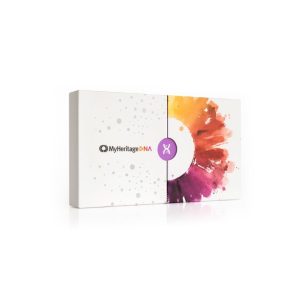

Key product features
What you should know
MyHeritage has 96 million users worldwide and an extensive database of more than 19.8 billion historical records. You can add DNA matches and records to your family tree, and MyHeritage subscribers can create trees with unlimited entries. Even without a subscription, you can still add 250 people to your family tree for free, enough to cover many generations.
- Four DNA test kits are available that range from basic ancestry to total health reports
- No subscription is required for viewing and contacting DNA matches
- DNA matches can be added directly to your family tree
Why we like MyHeritage as best for building family trees
As a longtime MyHeritage user and subscriber, I’ve assembled a family tree of more than 2,000 confirmed relatives. Not only can you take advantage of SmartMatches with other users and information in their family trees, which you can then copy to your own tree with just one click, but MyHeritage will give you hints if it matches someone in your family tree with historical records.
One feature I love about MyHeritage is that I can fill out bios, attach photos, and upload documents and records to each entry in my family tree. This helps me keep all of my information in one place. I also pay an extra $5 per month to back up the data in my family tree, which helps me feel confident that my hard work and research will be preserved if something happens.
With MyHeritage’s robust user database of 96 million users, I’ve been able to find and connect with DNA matches worldwide. As a first-generation American, I found MyHeritage’s global presence the best for my genealogy needs since it has records and users from around the world (my family tree doesn’t have many U.S.-based historical records, so I loved this feature for international research).
However, you’ll need a subscription to access all of MyHeritage’s features, including researching historical records and building an unlimited family tree. Nonetheless, you can still build a family tree for free on MyHeritage with up to 250 entries, which may be enough for most average users. There’s also no health testing, so MyHeritage is strictly limited to ancestry data and research.
Check out our full MyHeritage review to learn more about this brand.
What customers are saying
Trustpilot verified reviewers give MyHeritage 3.7 out of 5 stars. “My family tree seems to have grown exponentially,” wrote verified reviewer David D., who calls his work a “super family tree.” David D. is among many MyHeritage users praising the family tree feature, while others report great customer service.
“I got in touch with MyHeritage about two separate issues I had. I was impressed by how quickly I got a response to my message in less than 24 hours.”
Morgan, Trustpilot reviewer
Still, some users complain about the lack of features they can use without a subscription and surprise charges for an annual membership after their free 30-day trial. “If you wait too long to cancel, you’re getting automatically charged for an annual subscription,” wrote verified Trustpilot reviewer Sascha, “which is not cheap.”
Specs
| Price | $89 |
| Wait time | Four weeks |
| Collection method | Cheek swab |
| Postage included | Yes |
| User database | 96 million |
| Health testing | No |
Best DNA test for maternal and paternal heritage: FamilyTree DNA
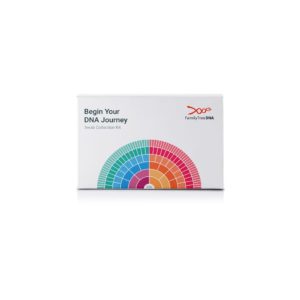

Key product features
What you should know
FamilyTree DNA may have a smaller database of two million users, but its maternal and paternal heritage testing options are some of the best on the market. Still, if you’re looking for standard ancestry testing, FamilyTree DNA also has an entry-level Family Finder test kit.
- There are four DNA test packages that range from basic ancestry to advanced maternal or paternal testing.
- You can view and compare shared DNA segments with other users.
- Wellness reports are available with 30 health insights for an additional $79.
Why we like FamilyTree DNA as best for maternal and paternal heritage
As our best ancestry DNA test for maternal and paternal heritage, FamilyTree DNA offers some of the most advanced ancestral testing on the market. While you can certainly opt for a basic family ancestry testing that gives you a breakdown of your origins and DNA matches, those looking for more detailed information may want to consider a maternal or paternal ancestry test.
Maternal ancestry testing follows the migration of your maternal line ancestors and can be determined through mitochondrial DNA (mtDNA) testing. Paternal ancestry can identify when surname lines branch off into other lines (thus creating different branches in your family tree) and is discovered through Y-DNA testing. These advanced tests can be pricey, at $119 to $449, but they can uncover a treasure trove of information that may be worth it for genealogists or family history buffs.
Not only can you uncover origins specific to your maternal or paternal lines, but you can also create and join group projects for different surnames. These projects can be used to share information with distant relatives or people with the same surnames as yours. However, one downside to FamilyTree DNA is that DNA matches are notoriously slow to load (as I’ve experienced with nearly every log-in). They take a few minutes to populate, so you’ll want to be patient. The user database is also smaller at just two million users, so you may have fewer DNA matches than other sites.
What customers are saying
Buyers on Trustpilot report issues resolving concerns with customer service, as well as delayed test turnaround times. “I’m up to three weeks of trying to solve issues,” verified reviewer John R. complained. “It’s a cumbersome service process.”
Yet many customers report learning valuable insight from advanced DNA testing for the test quality itself.
“They are the only ones who have given a complete and in-depth overview of the paternal line thanks to the Big Y [Paternal Ancestry] test.”
Marco R., Trustpilot reviewer
“Their mtDNA [Maternal Ancestry] analysis can give you more than just a haplogroup [ethnicity estimate], but also identify new branches who share your maternal lineage,” confirmed verified Trustpilot reviewer David W.
Specs
| Price | $79-$449 |
| Wait time | 4-8 weeks |
| Collection method | Cheek swab |
| Postage included | Yes |
| User database | Two million |
| Health testing | Yes |
Best DNA test for exploring DNA and health data: Living DNA
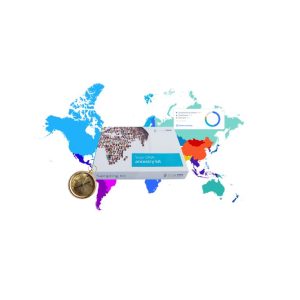

Key product features
What you should know
While Living DNA may not be as big as DNA test kit giants like Ancestry and 23andMe, it has thorough and detailed test kits for ancestry and health. Advanced ethnicity and wellness reports can teach you about your ethnic origins or your body’s response to nutrition and fitness. It also offers blood testing for more precise health reports on cholesterol status and beyond.
- Four DNA tests range from basic ancestry to advanced maternal or paternal testing.
- View and compare shared DNA segments with other users.
- Wellness report with 30 health insights available for an additional $79.
Why we like Living DNA as best for exploring DNA and health data
Living DNA may be new to the DNA test kit space (at least compared to longer-running services like Ancestry), but this up-and-coming DNA test kit company offers promising ancestry and health reports. Its DNA ancestry kit can give you an ancestral breakdown by region, information on your paternal and maternal lines, and DNA matches. In total, it promises to uncover 500 years of family ancestry, and there is also a test kit specifically designed for testing Neanderthal ancestry.
People interested in health and wellness can also try Living DNA’s well-being kit. This robust kit tests your vitamin response and food metabolism. It can determine what the optimal exercise regimen is for your genetic makeup and how well you recover from physical activity. By testing DNA, Living DNA can discover genetic variants that affect how your body metabolizes vitamins, minerals, and other nutrients. Using this information, Living DNA can offer nutrition tips and exercise ideas tailored to your results.
Since Living DNA is newer, it has a much smaller user database of just 300,000 users. This means that if you’re interested in finding DNA matches and relatives, Living DNA probably isn’t your best bet. Instead, you may want to opt for a DNA test kit service with a larger user pool. It also doesn’t house any historical records yet, so this isn’t the best option for genealogical research.
To learn more, see our complete Living DNA review.
What customers are saying
Living DNA has received 4.3 out of 5 stars on Trustpilot. Buyers note excellent customer service and detailed test kit reports.
“I found Living DNA very helpful when my mom didn’t fill in something correctly. I contacted them via email and promptly responded with clear instructions on rectifying the issue.”
Kerrie H., Trustpilot reviewer
Verified Trustpilot reviewer Jean T. echoed that customer service response was always “efficient and timely” whenever she needed help.
Still, some customers report inaccurate results, such as being grouped in the wrong ethnicity estimates despite known and documented ancestral origins. “My results came back that I had 72% South German ancestry when my ancestors were from Great Britain,” wrote verified Trustpilot reviewer Sarah M. “Three other DNA tests I took said I was mainly of British descent.”
Specs
| Price | $124-$225 |
| Wait time | 6-8 weeks |
| Collection method | Cheek swab or blood sample |
| Postage included | No |
| User database | 300,000 |
| Health testing | Yes |
Our at-home testing methodology
We considered several factors when determining which DNA tests were truly the best. In addition to some of the givens, like price, results turnaround time, and ease of ordering, we also considered more specific features. For example, was the health information provided by health DNA tests valuable? Was there a big user pool of DNA matches? What DNA test is the most accurate? By evaluating these items, we could choose the best DNA testing kits. You can see our full at-home testing methodology here.
Testing criteria
Accuracy and reliability—40%
Accurate test results are the most important element of at-home testing kits, as they form the basis for the user’s health decisions. Whether you’re exploring your genetic background, tracking fertility cycles, or identifying food sensitivities, the integrity of the data provided by these tests is crucial. Reliable results help users confidently make informed decisions for personal health management or discussions with their healthcare provider.
Here’s what we look for:
- Measurement precision
- Consistency
- Environmental influence
- Sample integrity
- Lab standards
Ease of use and accessibility—30%
The ease of use and accessibility of at-home testing kits determine how effectively individuals can utilize these products. A testing kit may offer the most advanced technology and accurate results, but its benefits are significantly diminished if it is not user-friendly. Ensuring that these kits are accessible and easy to use empowers a broad range of users, including those who may not have prior experience with medical testing or technology. This enhances the likelihood of correct usage, accurate sample collection, and reliable results, ultimately improving the overall experience and satisfaction. We evaluate:
- Instruction clarity
- Sample collection process
- Online platform usability
- Support resources
- Accessibility features
Value—20%
Evaluating the value of at-home testing kits is critical, encompassing the initial purchase price, long-term financial implications, and overall cost-effectiveness. A high-value kit delivers reliable results without imposing excessive costs over time, so users can receive meaningful health benefits for their investment.
We evaluate:
- Cost of the kit
- Insurance coverage
- Long-term cost analysis
- Warranty
Customer experience—10%
A positive customer experience helps users feel supported, informed, and satisfied at every stage of their interaction with the kit. This category considers multiple touchpoints, including customer service, delivery and packaging, user feedback, and return policies. By prioritizing customer experience, we aim to recommend products that not only meet technical and performance standards but also provide a seamless and supportive user experience.
Our factors in this rating include:
- Customer service
- Delivery and packaging
- User feedback and reviews
- Return policy
How do DNA tests work?
At-home DNA testing is a fairly straightforward process. Once you purchase a DNA test, you’ll receive a mail test kit containing your sample collection items (such as a vial for a saliva sample or swabs for a cheek sample) and a set of instructions. Your kit will also contain a self-sealing envelope or box that you can use to package and mail your DNA sample for processing.
For standard DNA tests, you’ll choose between an ancestry test (which tests your autosomal DNA; more info on what autosomal testing means below) and/or a health test that looks at your genetic information for health predispositions. Some services also let you dive deeper into your genetic markers with more advanced DNA tests that test paternal lines or use mtDNA testing, which traces your maternal lines. Specialty tests like these tend to be more expensive than basic DNA tests.
Most DNA kits come with a QR code or tracking number that you can plug into your online account with that service to track the status of your DNA results. Your DNA test will be processed in a lab and go through many steps before the results hit your inbox. (3) This extensive process includes extracting raw data, amplifying it (or making up to a thousand copies), sequencing or reading it, and creating a file with your unique genetic data. Results are then run through algorithms that generate matches for DNA relatives, ethnicity estimates, genetic health risks, or trait reports. (4)
You’ll be notified by text or email when your results are ready. It’s important to be patient because DNA data takes several weeks to process. Sometimes, DNA samples may fail if they’re not collected correctly or for reasons unknown (as happened to me), so there’s a small chance you may need to test twice. (5) If that happens, DNA testing companies will likely mail you a new test to take for free.
Your DNA test results may vary depending on what type of test you’ve purchased. You might receive ancestry reports with your haplogroups, which are ancestral groupings (such as Ashkenazi Jewish or Irish). If you take a health test, your report may include health conditions you’re predisposed to. It might also help predict how well you’ll respond to your medications. However, it’s important to remember that a health risk determined by your genetic makeup doesn’t mean you will develop it.
How to use a DNA testing kit
How to use a DNA testing kit will vary based on the type of DNA test you purchase and the testing service. Most DNA tests require a saliva sample or cheek swab. For a saliva sample, you’ll spit into a tube until you reach a designated line with the correct amount. You’ll then cap the tube, put it into a self-sealing envelope or box (whichever your test kit comes with), and mail it off for processing.
Cheek swabs require a bit more work. These DNA tests will often come with two cheek swabs, which helps ensure a backup swab is processed if the first one doesn’t work. The exact time may vary, but you’ll likely swab the inside of each cheek for 15-30 seconds to collect DNA data. Like a saliva sample, you’ll seal your cheek swabs in an envelope and send them to a lab for extraction.
Who should use a DNA test
You might want to take a DNA test for many reasons. Perhaps you’re curious about your ancestry results, or you’re interested in finding family members through DNA matches. You might also be a seasoned genealogist or researcher seeking historical records on your family.
Health DNA tests can also provide valuable information on health conditions you may be predisposed to; this can help you make positive lifestyle changes such as losing weight, eating a vegetable-rich diet, or exercising more. If you plan to start a family, a health and wellness DNA test can also identify your carrier status for diseases that could be passed down to offspring.
Nowadays, even dog DNA tests can check for genetic health conditions your dog may be predisposed to. Still, keep an open mind when taking a DNA test. You may discover hidden family secrets, or if you’re going down the health test route, information about your health may cause stress or anxiety. Be sure to keep this in mind before taking a DNA test of any kind.
“It’s important to note that at-home DNA tests have limitations, especially if you have a strong family history of cancer or are known to be at high risk,” warns. Dr. Simran Malhotra. “Many of these tests only look for a very small number of mutations in a handful of genes, so it’s important to understand your risk. If your at-home test is negative, it doesn’t necessarily mean you are in the clear. If you have a strong family history of cancer and your at-home test was negative, it would be a good idea to speak with your healthcare team and/or a genetic counselor to discuss further testing to assess your risk better.”
DNA test terminology
DNA testing can involve many important words. Here are a few quick terms to familiarize yourself with to help you better understand the testing process and your genetic makeup.
- Haplogroups: Haplogroups are genetic or ancestral groupings within a population. All members of a specific haplogroup can trace their ancestry to a single individual on both the maternal and paternal sides. (6)
- Autosomal DNA: Autosomal DNA is your inherited DNA that determines genetic origins. This DNA data is used to generate health reports and/or ethnic groups you belong to. (7)
- Mitochondrial DNA: Mitochondrial DNA is DNA passed down through your maternal lines. It can help you trace your maternal origins. (8)
- Y-DNA: Y-DNA is DNA passed down through your paternal lines. It can help you trace your paternal origins. Only genetic males can take Y-DNA tests. (8) Genetic females can determine their paternal haplogroup if Y-DNA is tested in male relatives from their father’s side.
- Reference population: Your unique DNA is tested against reference populations, or reference groups in a DNA database, to determine which ethnic groups you belong to. (9)
How to choose the best DNA test for you
With numerous DNA tests, you may wonder, “What is the best DNA test for me?” Consider these factors before deciding on a DNA test kit and service.
Reason for testing
There are many reasons for DNA testing. Perhaps you’re curious about your ancestral origins, or you’re planning to start a family and want to know if you carry any genetic diseases. The best DNA testing kit will depend on your interest in testing your DNA.
Most family history needs can be met with your basic autosomal DNA test (like Ancestry), but if you’re a genealogy buff and you want to dive deeper, you may want to opt for a more detailed test for your maternal or paternal lineage. Some DNA test kit services also offer test combinations that test your ancestry and health with just one swab or saliva sample.
Turnaround time
At the bare minimum, you can expect to wait at least two weeks for your DNA test results, but most DNA test kits require a turnaround time of closer to one month or more. You may be anxious to learn more about your ancestry or well-being, so if time is of the essence, you may choose a DNA test from our list with a quicker turnaround time, like FamilyTree DNA or MyHeritage.
Data privacy
Reputable DNA test kit services, including those on our list, take numerous strides to protect your privacy. Carefully read their privacy reports to determine which best suits your needs.
Cost
A basic DNA test for ethnicity estimates and DNA matches will cost around $100, give or take. You can expect to pay slightly more for health testing or combination tests, while the most expensive DNA tests on the market are specialty tests for paternal or maternal lineages. Be sure to consider your budget and what you feel is worth learning about your ancestry or health.
Keep in mind that some test kit sites, like Ancestry.com and MyHeritage, require a subscription for research and/or larger family trees. These are additional costs to consider if you plan to do either.
FAQs
What DNA test is most accurate?
Ancestry is largely hailed as the most accurate DNA test because of its large user pool of more than 22 million people (meaning your DNA is tested against more people, leading to more accurate ethnicity estimates and DNA matches). Still, every genetic testing kit on our list is considered to be among the most accurate on the market and will likely yield valuable information.
Which is better, MyHeritage or 23andMe?
Neither MyHeritage nor 23andMe is necessarily better. Instead, the best ancestry test for you will depend on your interests. MyHeritage has more than 19.8 billion genealogy records to research and has users worldwide, so you may be able to take a deeper dive into your family history. 23andMe, meanwhile, is more streamlined and offers a detailed health test that MyHeritage doesn’t have.
Can a saliva DNA test be wrong?
A DNA saliva sample may fail for several reasons. (10) Sometimes, tests aren’t taken correctly or become contaminated with bacteria. While this is less common, lab and processing errors also occur. If your DNA sample fails, you’ll likely get a new test kit for free from your DNA testing service.
Our Experts
Dr. Aneesha Dhargalkar
Dr. Aneesha Dhargalkar is a board-certified emergency medicine physician currently practicing in West Chester, PA. She graduated cum laude from John Hopkins University in 2002 and from Jefferson Medical College in 2006. After this, Dr. Dhargalkar attended and completed a three-year residency program in emergency medicine at Temple University Health System. Dr. Dhargalkar is the director of her hospital’s wellness provider program and sits on the executive board of both the Chester County Suicide Prevention Task Force and the Unionville Chadds Ford School District Education Foundation.
Simran Malhotra MD., DipABLM, CHWC
Dr. Simran Malhotra is a triple board-certified physician in internal medicine, hospice and palliative care, and lifestyle medicine, and a certified health and wellness coach. She is currently practicing part-time as an inpatient palliative care physician at MedStar Health. She completed the T.Colin Campbell Plant-based nutrition certification in 2019, the CHEF culinary coaching certification in 2020, and the WellCoaches health and wellness coaching certification in 2022.
Heather Morsellino
Heather Morsellino is a freelance writer and fact-checker with over four years of experience in healthcare. She has worked as a pharmacy technician, emergency room medical scribe, and anesthesia technician in the operating room and will finish her ADN within the following year.

Ashley Zlatopolsky
Fortune Recommends Longevity Writer
About Author
Ashley Zlatopolsky is a Detroit-based writer and editor. She writes about health, wellness, and fitness for Real Simple, Healthline, Greatist, SELF, and more. Previously, she worked as a branded content strategist at USA TODAY. In her spare time, Ashley enjoys dancing, kickboxing, strength training, and running.
